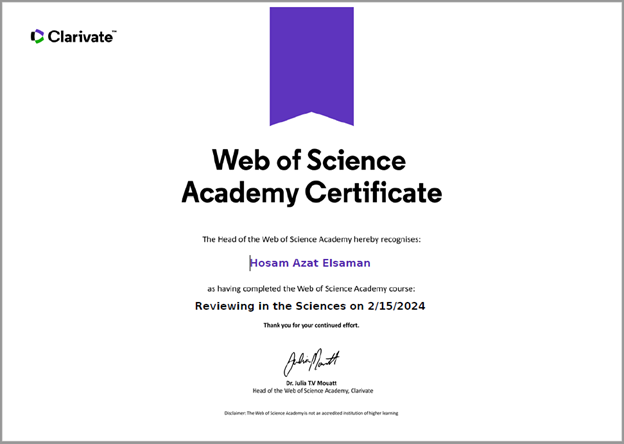An evaluation of gross inland energy consumption of six Central European countries
DOI:
https://doi.org/10.15549/jeecar.v6i2.291Keywords:
Central European countries, Correlation matrix, Energy consumption, Sankey diagram.Abstract
The study provides a comprehensive overview of the current structure and utilization of energy production of six Central European countries (Poland, Czech Republic, Slovakia, Bulgaria, Hungary and Romania) focusing on the dependence on energy imports. The purpose of the article was to analyse the gross inland energy consumption of these six countries and to examine the relationship between renewable energy and non-renewable energy sources. A comparative time series analysis method using data from 2010 to 2016 was utilized. In addition, partial correlation analysis under control variables to determine whether the relationship calculated in the correlation matrix exists or not was applied. Results indicated that in the European Union, the renewables have mainly replaced nuclear energy. A combination of renewables and natural gas replaced the coal in Poland, Czech Republic, Slovakia and Bulgaria. Findings were inconclusive to prove this in Hungary and Romania. The energy production structure of the six Central European countries varies due to the differences in natural endowments. However, the results showed that the renewables mainly replaced coal.
References
British Patrol (2018). Statistical Review of World Energy. https://www.bp.com/en/global/corporate/energy-economics/statistical-review-of-world-energy/downloads.html
Commission of the European Communities, (2006). Green Paper. A European Strategy for Sustainable, Competitive and Secure Energy. http://europa.eu/documents/comm/green_papers/pdf/com2006_105_en.pdf Date of access: 10 October 2018.
Demirbas, M.F., Balat, M., Balat, H. (2009). Potential contribution of biomass to the sustainable energy development. Energy Conversion and Management, 50(7): 1746–1760. https://doi.org/10.1016/j.enconman.2009.03.013 DOI: https://doi.org/10.1016/j.enconman.2009.03.013
Doner, J. (2007). Barriers to adoption of renewable energy technology. Illinois State University. Institute for Regulatory Policy Studies; p. 32
Ellabban, O., Abu-Rub, H., Blaabjerg, F. (2014). Renewable energy resources: Current status, future prospects and their enabling technology. Renewable and Sustainable Energy Reviews, 39: 748-764. https://doi.org/10.1016/j.rser.2014.07.113 DOI: https://doi.org/10.1016/j.rser.2014.07.113
European Commission, (1997). Communication from the Commission energy for the future: renewable sources of energy. Zhite Paper for a Community Strategy and Action Plan. http://europa.eu/documents/comm/white_papers/pdf/com97_599_en.pdf Date of access: 10 October 2018.
Fodor, B. E. (2012). Promoting the Use of Renewable Energies. An Evaluation of the Hungarian Feed-in Tariff System. PhD Dissertation. Corvinus University of Budapest p. 230.
Harangi - Rákos, M., Popp, J., Oláh, J. (2017). Global Outlook of World Biofuels Production. Journal of Central European Green Innovation. http://greeneconomy.unieszterhazy.hu/sites/greeneconomy.foiskola.krf/files/upload/JCEGI_2017_5_4_2.pdf Date of access: 14 November 2018.
Hernández, L., Burriel, J. R., Bujdosó, Z., Topliceanu, L. (2017). Training needs in renewable energies for local development. http://repositori.uji.es/xmlui/bitstream/handle/10234/167300/O2_Training%20needs%20in%20RES%20for%20local%20development_En.pdf?sequence=4 Date of access: 18 November 2018. DOI: https://doi.org/10.6035/IN2RURAL.2016.01
International Energy Agency (2011). Deploying renewables 2011: Best and Future Policy Practice. p. 186 https://webstore.iea.org/deploying-renewables-2011-best-and-future-policy-practice
Jurcova, V. (2017). The Slovak energy transition – decarbonisation and energy security. https://energytransition.org/2017/05/the-slovak-energy-transition-decarbonisation-and-energy-security/
Piwowar, A., Olanszka, A., Rezny, L. (2017). Development of Renewable Energy in the Visegrad Ccountries - Comparative Analysis, in International Scientific Conference Hradec Economic Days 2017, At Hradec Králové, Czech Republic, pp. 695-705.
Popp, J. (2013). The role of bioenergy in the global energy supply. Gazdálkodás Scientific Journal. 57 (5): 419 – 435.
Popp, J., Oláh, J., Farkas Fekete, M., Lakner, Z., Máté, D. (2018a). The Relationship Between Prices of Various Metals, Oil and Scarcity. Energies, p. 1-19. https://doi.org/10.3390/en11092392, http://www.mdpi.com/1996-1073/11/9/2392 DOI: https://doi.org/10.3390/en11092392
Popp, J., Kot, S., Lakner, Z., Oláh, J. (2018b). Biofuel use: peculiarities and implications. Journal of Security and Sustainability Issues, 7(3), p. 77-493. http://jssidoi.org/jssi/uploads/papers/27/Popp_Biofuel_use_peculiarities_and_implications.pdf DOI: https://doi.org/10.9770/jssi.2018.7.3(9)
Reiche, D., Bechberger, M. (2004). Policy differences in the promotion of renewable energies in the EU member states. Energy Policy. 32(7): 843 – 849.
REN21, (2018). Renewables 2018 Global Status Report 2018. http://www.ren21.net/wp-content/uploads/2018/06/17-8652_GSR2018_FullReport_web_-1.pdf Date of access: 19 November 2018.
Szabo, M., Kiss, Á. (2014). Effects of renewable energy resources on the landscape. Hungarian Geographical Bulletin, 63(1):5-16.
Wiuff, A., Sandholt, K., Marcus-Møller, C. (2006). Renewable energy technology deployment: barriers, challenges and opportunities, EA energy analyses for the IEA RETD implementing agreement.
Downloads
Published
How to Cite
Issue
Section
License
The JEECAR journal allows the author(s) to hold the copyright and publishing rights of their own manuscript without restrictions.
This journal applies the Creative Attribution Common License to works we publish, and allows reuse and remixing of its content, in accordance with a CC-BY 4.0 license.
Authors are free to: Share — copy and redistribute the material in any medium or format and Adapt — remix, transform, and build upon the material for any purpose, even commercially.
Under the following terms: Attribution — You must give appropriate credit, provide a link to the license, and indicate if changes were made. You may do so in any reasonable manner, but not in any way that suggests the licensor endorses you or your use.
No additional restrictions — The author may not apply legal terms or technological measures that legally restrict others from doing anything the license permits.
The JEECAR Journal is committed to the editorial principles of all aspects of publication ethics and publication malpractice as assigned by the Committee on Public Ethics.












